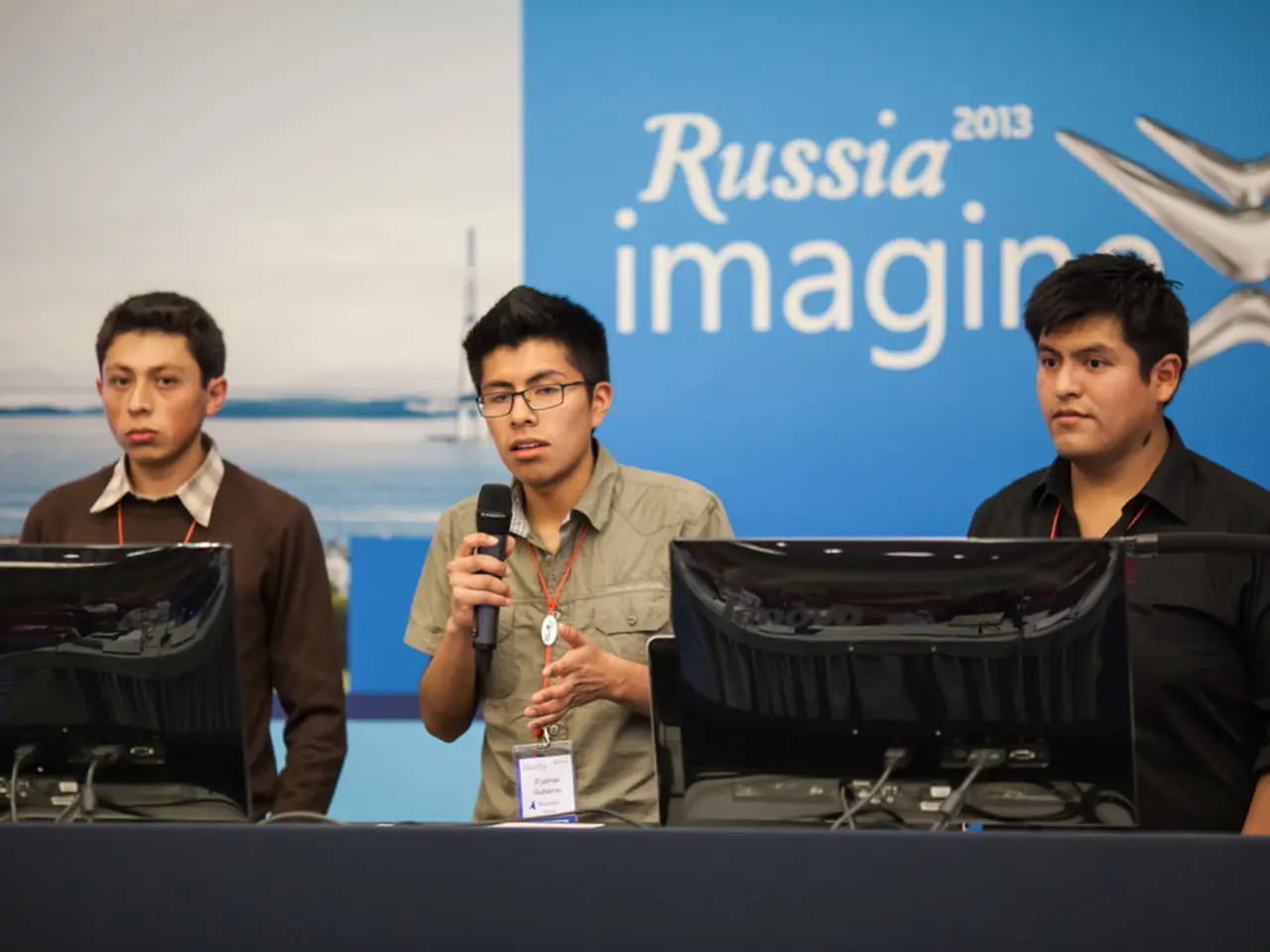EU maintains frozen assets for Russia are not to be released without Russia first compensating for the damages caused.
The European Union (EU) is currently in discussions about the utilisation of approximately €210 billion worth of frozen Russian central bank assets, primarily to support Ukraine. This decision comes under pressure from some EU states, who are advocating for more aggressive confiscation or investment of these funds, while others, such as Belgium, strongly oppose outright expropriation due to concerns of Russian retaliation against Belgian assets abroad.
Kaja Kallas, the EU's foreign policy chief, has emphasised the need for the bloc to consider all options to maximise the use of the Russian frozen assets to help Ukraine. She also highlighted the importance of exploring all available avenues while minimising potential risks.
Last year, the EU, along with its G-7 partners, used the interest earned on these assets to back a $50 billion loan to Ukraine. However, Kallas acknowledged that there will likely be no movement on the issue of using the Russian frozen assets in the near future.
Ursula von der Leyen, the EU's chief, has stated that the work on the use of the Russian frozen assets is advancing. She reiterated that it is unthinkable for Russia to see the frozen assets again unless it fully compensates Ukraine for the damages caused.
Belgium, where the majority of these frozen assets are held by the international deposit organisation Euroclear, has taken a different stance. The country is against any confiscation of the Russian frozen assets. Instead, Belgium has implemented an almost 100% tax on income generated by these assets, which currently finances guarantees for G7 loans to Ukraine.
Maxime Prevot, the Belgian foreign minister, stated that changing the investment strategy is not an option due to potential increased risks. He also mentioned the need to address Ukraine's financing gap and hold Russia accountable for war damages.
Meanwhile, the U.S. is pushing efforts to end the conflict in Ukraine. The EU's stance on the use of the frozen Russian assets is a significant step in its ongoing support for Ukraine. The debate continues, with the EU weighing the potential benefits against the risks involved in the utilisation of these assets.
Read also:
- Understanding Hemorrhagic Gastroenteritis: Key Facts
- Stopping Osteoporosis Treatment: Timeline Considerations
- Trump's Policies: Tariffs, AI, Surveillance, and Possible Martial Law
- Expanded Community Health Involvement by CK Birla Hospitals, Jaipur, Maintained Through Consistent Outreach Programs Across Rajasthan








